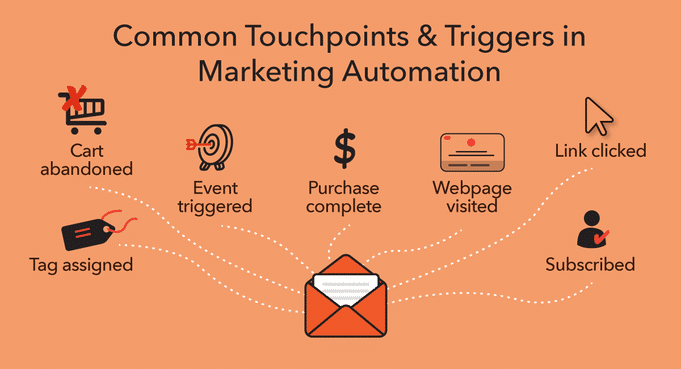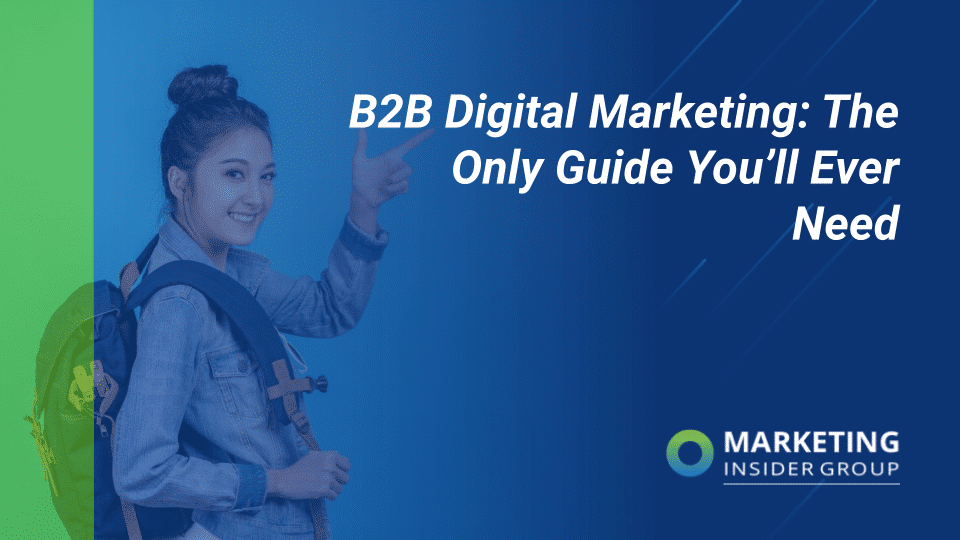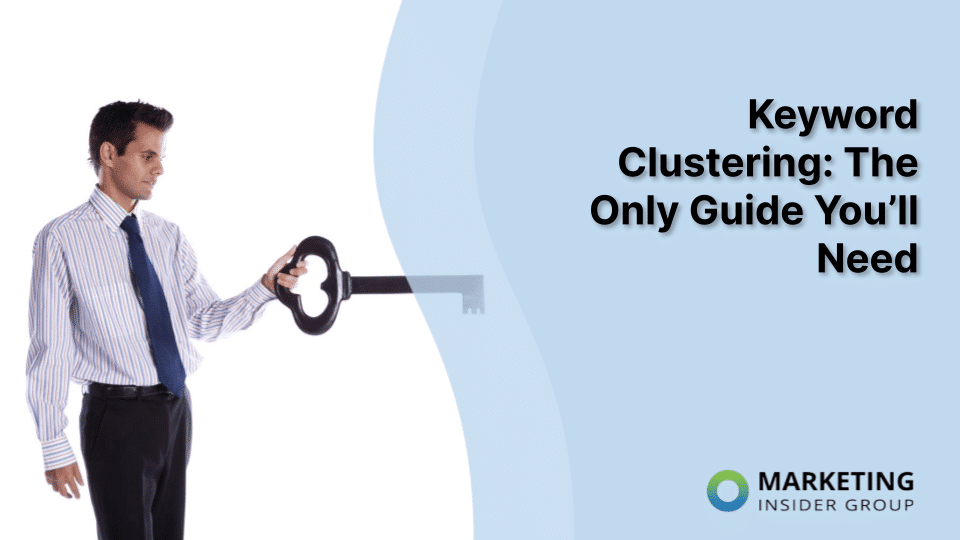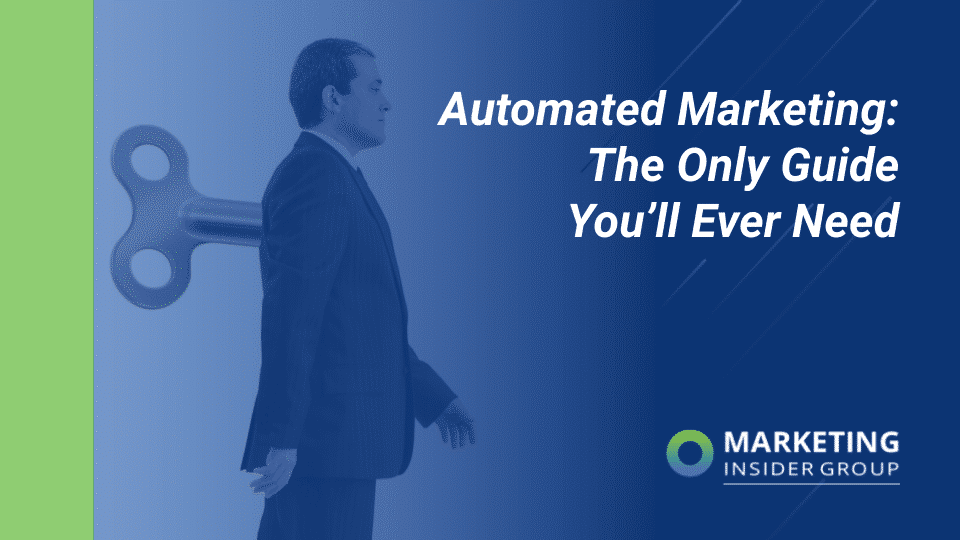
Automated Marketing: The Only Guide You’ll Ever Need
Automated marketing has been exploding across industries in recent years. Experts expect these tools to boost the global gross domestic product by up to 14% by 2030.
Still, there’s a lot of talk about automated tools failing to create authentic experiences. Is diving into marketing automation worth the investment?
We’ve got the answers here. Discover everything you need to know about getting started with automated marketing.
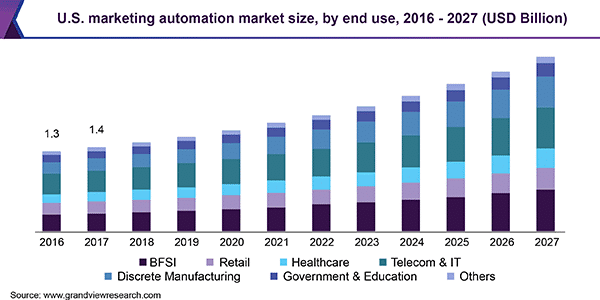
Key Takeaways:
- Automated marketing software lets you program and test marketing campaigns more easily than ever before.
- Put critical marketing tools and processes in place before jumping into automated marketing.
- Marketing automation can save you time and money and improve the buyer’s journey.
- Keep in mind best practices to ensure your automated marketing campaigns are personable.
What Is Automated Marketing?
Automated marketing is a system for targeting leads and customers with pre-programmed messages. These tools reach out through electronic formats, including email, social media, and texting.
The software can also automate collecting data and sending out personalized campaigns. As a result, the system reduces human error and maximizes efficiency in your marketing.
What Do You Need To Have in Place Before You Start Automated Marketing?
You could start by buying lead lists and sending automated marketing messages with generic templates. However, that’s an easy way to end up in spam boxes and blacklists.
Marketing automation helps you bring your existing marketing to a higher level. Get a good start by having the following three things in place:
- You should be using customer relationship management software. This tool helps you get a full view of your customers and leads so you can segment your marketing.
- You need to be engaging in email, texting, or social media marketing. Data from these campaigns help you properly execute your automated marketing.
- Your team needs to value and support content marketing. Genuine organic content will be how you engage your audience.
You don’t have to spend years on these steps. Several weeks or a few months is often enough to get the traction and information you need.
How Does Automated Marketing Work?
Automated marketing lets you spend less time writing messages and pressing “Send.” The system sends appropriate content to leads to build awareness, interest, and desire.
In action, marketing automation might involve a user coming to your site and subscribing to an email list. Your system captures the contact details in your CRM.
The software then sorts the individual into a predetermined group by buyer intent. The lead continues to receive emails or other content according to their highlighted interests.
Other touchpoints or triggers signal the system to send fitting messages. For example, an abandoned cart can trigger an email reminder to complete the purchase.
Eventually, you’ll get a positive response from a prospect who’s ready to buy. Your system directs the individual to the sales team to close the deal.
Automated marketing renders numerous benefits for your marketing efforts:
- You’ll get more interdepartmental collaboration with a simpler system and clearer data.
- You lower marketing costs and improve budget allocation.
- You get to know your audience better.
- You maintain more consistent branding.
When you do marketing automation right, you can take your promotions and campaigns to the next level.
How Does Automated Marketing Improve the Buyer’s Journey?
Customers have more power than ever and want to educate themselves on brands, products, and services on their own terms. However, they also want guidance due to the overwhelming amount of information out there.
With automated marketing, you can “curate a curriculum” to help buyers inform themselves. The customer maintains a sense of control and agency in the process while you gently guide them to a desired action.
This process means you must create different content for buyer journeys for the various segments of your target audience. Personalizing the information makes the journey smoother.
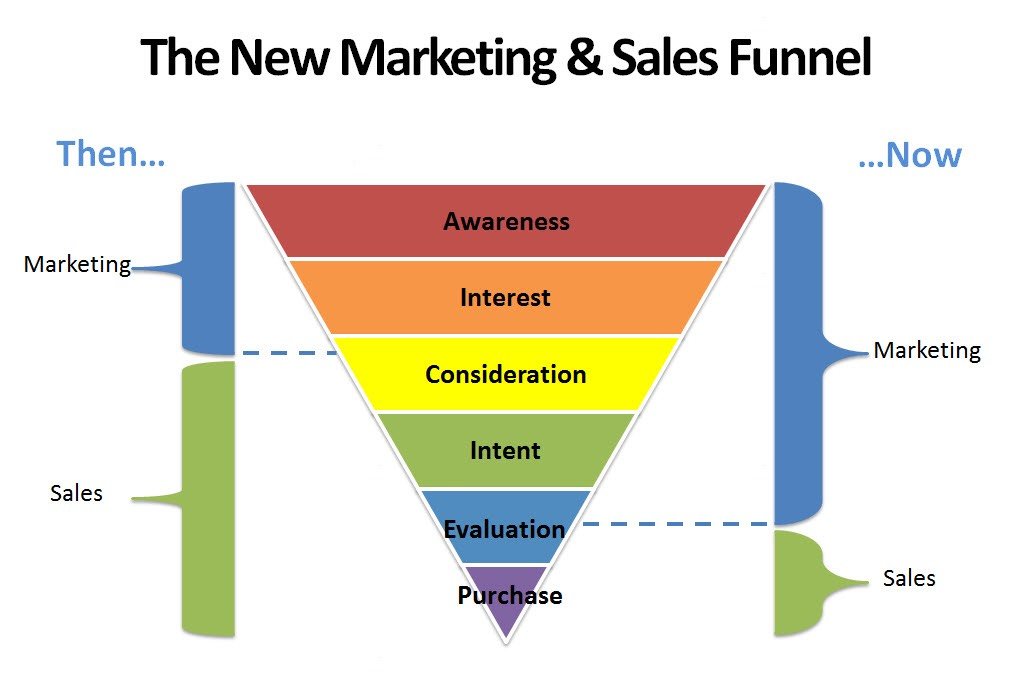
You gain outstanding benefits from doing things this way. First, your content is more relevant to each part of your audience.
For example, suppose you have a product that helps teachers. You could have one set of emails that address the concerns of social studies teachers and another that assists those in language arts.
You don’t have to create each message for every lead. You simply design a campaign for each demographic. Your CRM inserts the name, location, and organization to tailor the experience.
Also, you can create omnichannel experiences that are seamless. Remember: Clients hate repeating the same information over and over to a company.
In addition, an automated marketing system captures vital details and only sends information that fits the lead.
Consider the marketing for a real estate agency. If you repeatedly send messages to leads about properties with features that are deal-breakers, you’ll look ignorant or out of touch, and your prospects will go elsewhere.
Automated marketing helps you create tailored experiences that boost the odds of getting a sale.
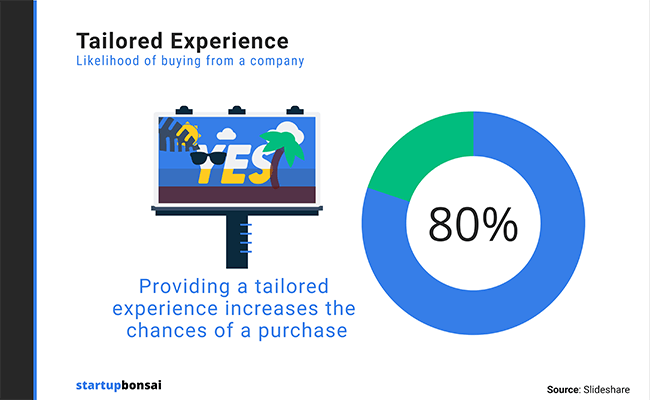
What Automated Marketing Best Practices Do You Need To Remember?
You have to walk a tightrope so that your automated marketing does not come across as robotic spam. Use these best practices to automate your marketing effectively.
- Set defined goals: A superpower of the software is you can monitor and improve campaigns easier, so work with concrete and actionable data.
- Coordinate with other departments: Take advantage of collaborative features to gain vital insights from team members.
- Segment your database: Save time personalizing campaigns by separating your audience by who you want to engage.
- Create a content strategy: Your on-site content and lead magnets need to be top-notch to hold onto your audience.
Remember to take your time; any effective marketing strategy requires patience to see results.
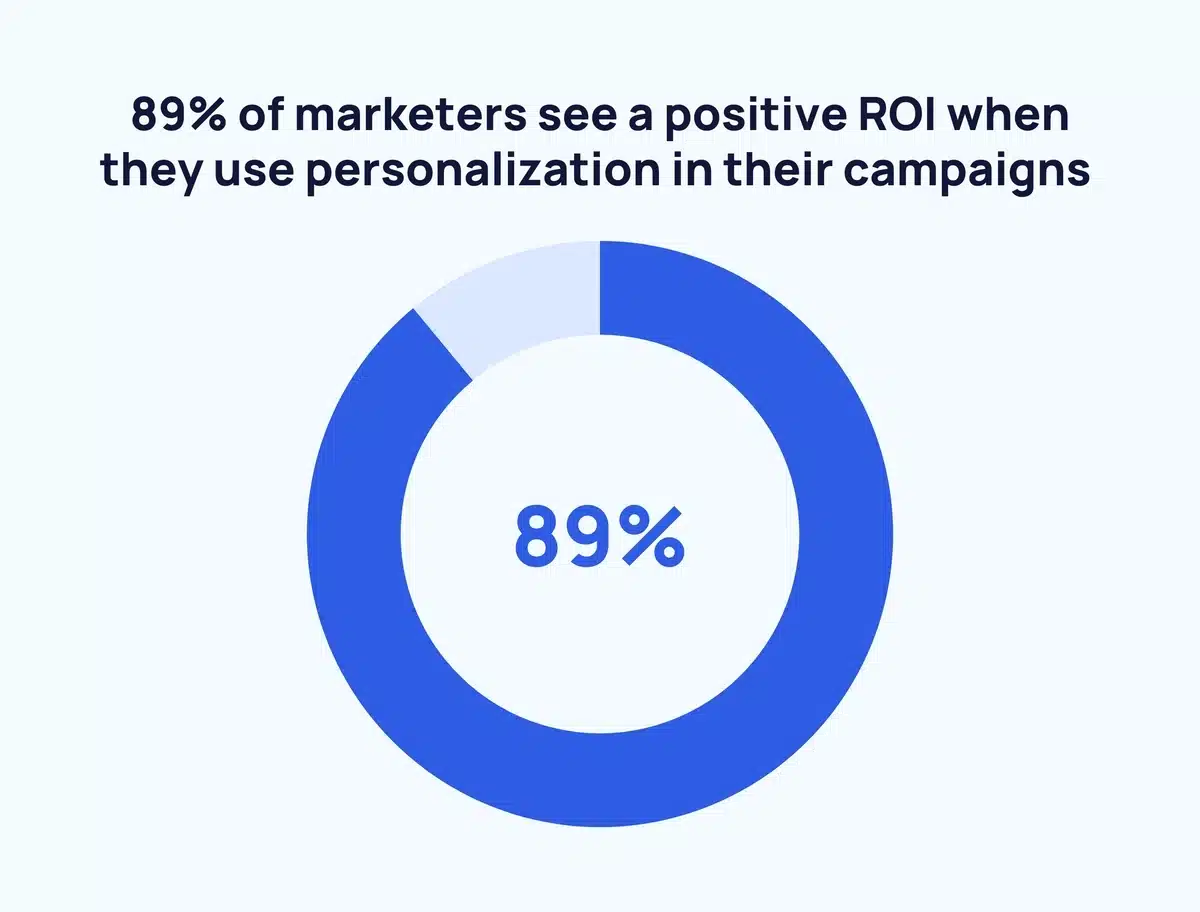
What Tools and Platforms Can Help Your Automated Marketing Efforts?
We wouldn’t leave you hanging about which tools can boost your automated marketing. Here are a few of the top options:
- HubSpot: A popular CRM platform for inbound marketing
- Salesforce: Another popular CRM with excellent A/B testing features
- Hootsuite: A great platform for social media marketing
- Get Response: An intuitive marketing automation software that is user-friendly and scalable
- Constant Contact: An email marketing platform with flexible budget options.
Of course, always keep your eyes out for new tools that can get the job done. You can be sure that if we discover anything else that’s a real winner, we’ll tell you about it here on the blog.
Why Are You Waiting To Get Started With Automated Marketing?
Automated marketing makes sense for every business whose manual marketing needs to move into the next gear. The only reason many companies hold off is a lack of time or team members to execute it.
Let Marketing Insider Group help you get ahead with your content and automated marketing. We’ve got a skilled team ready to help you move the needle in the right direction, so reach out to schedule a free consultation.

